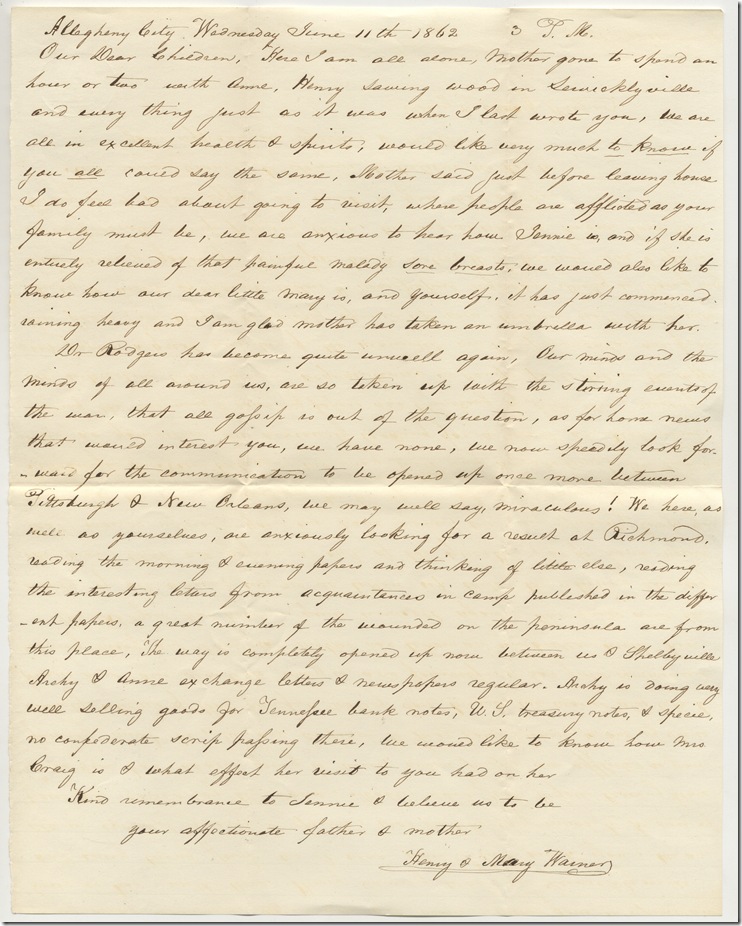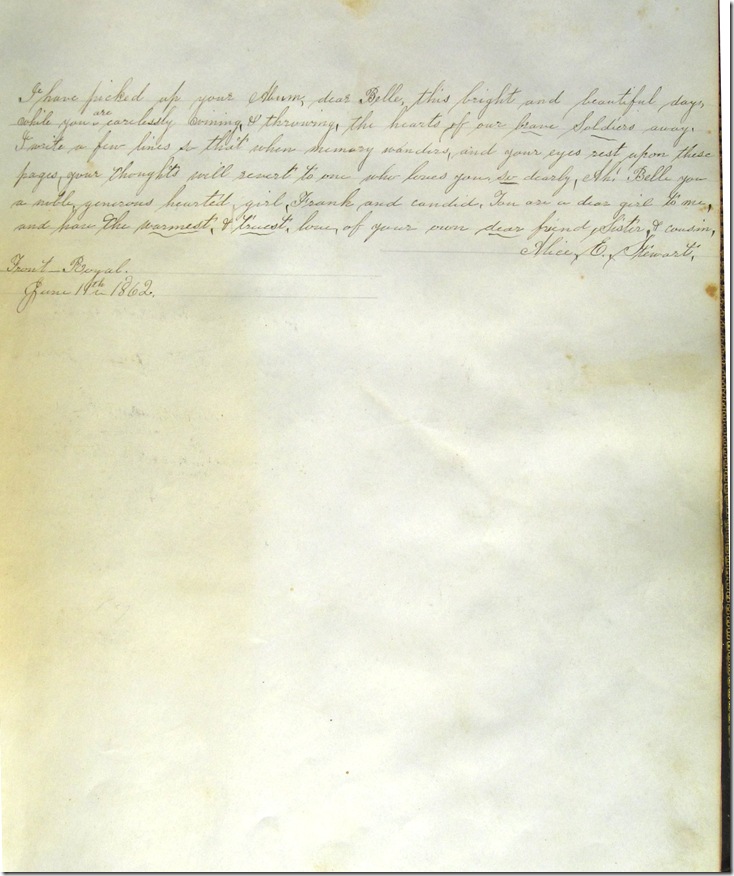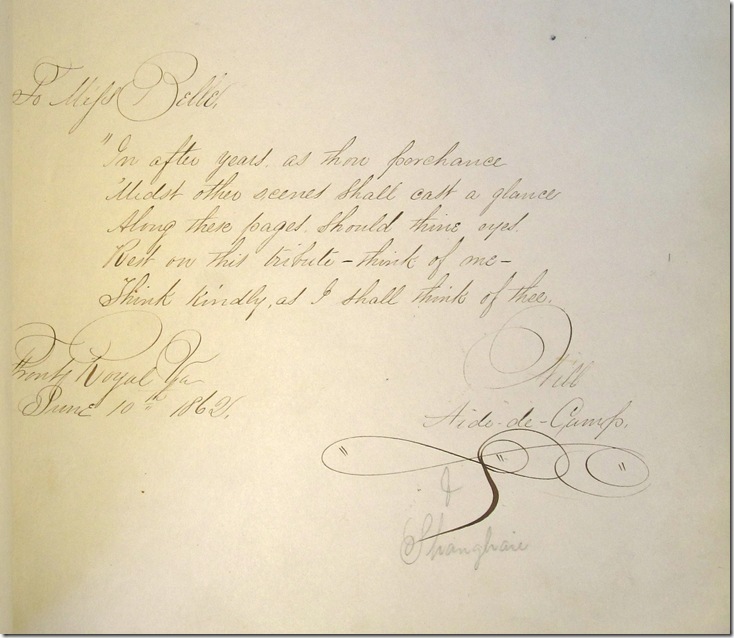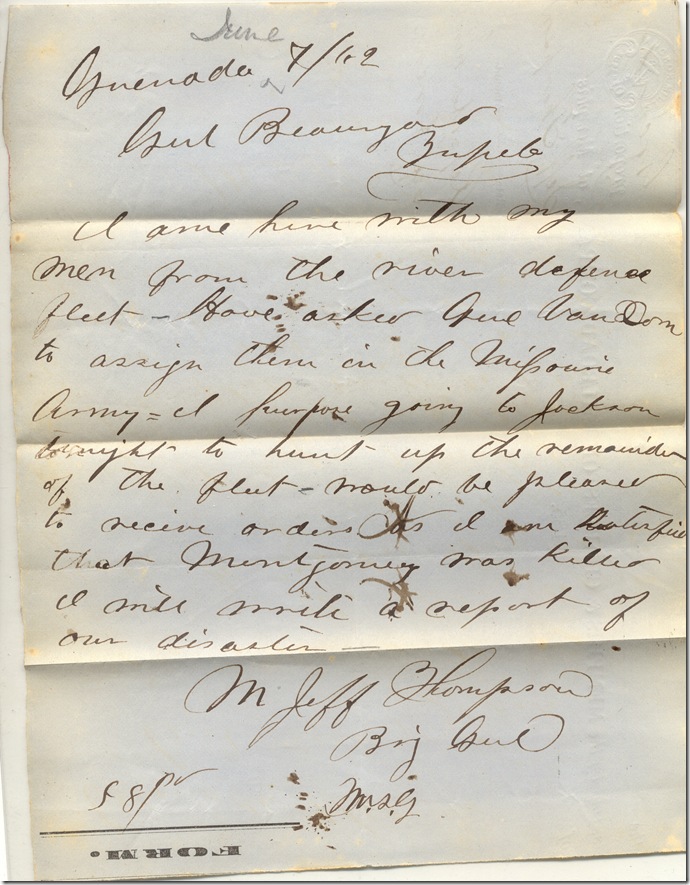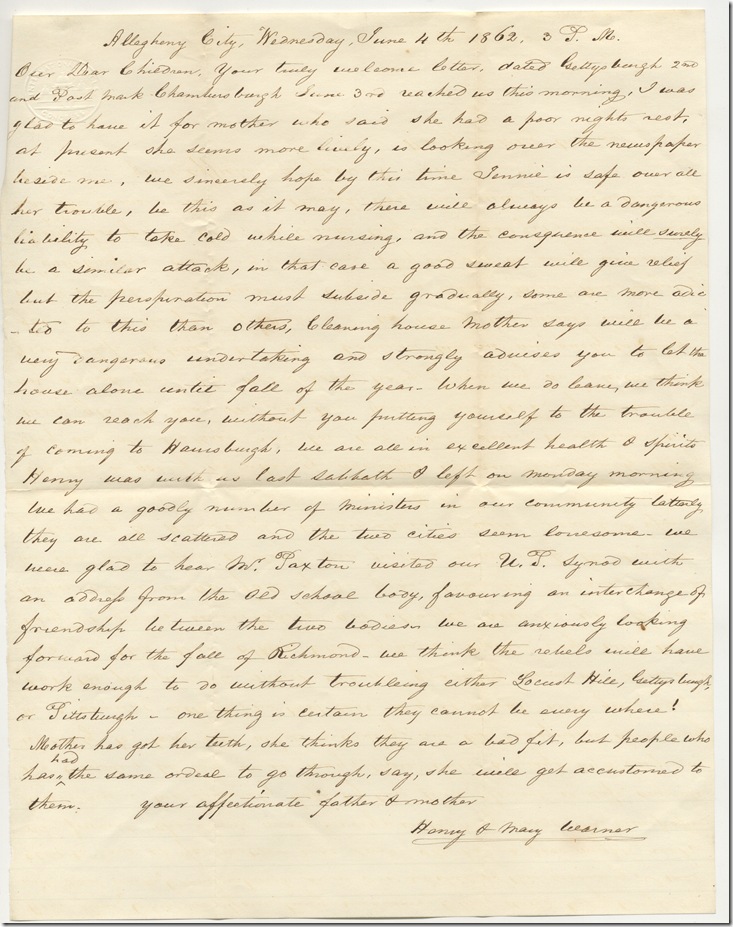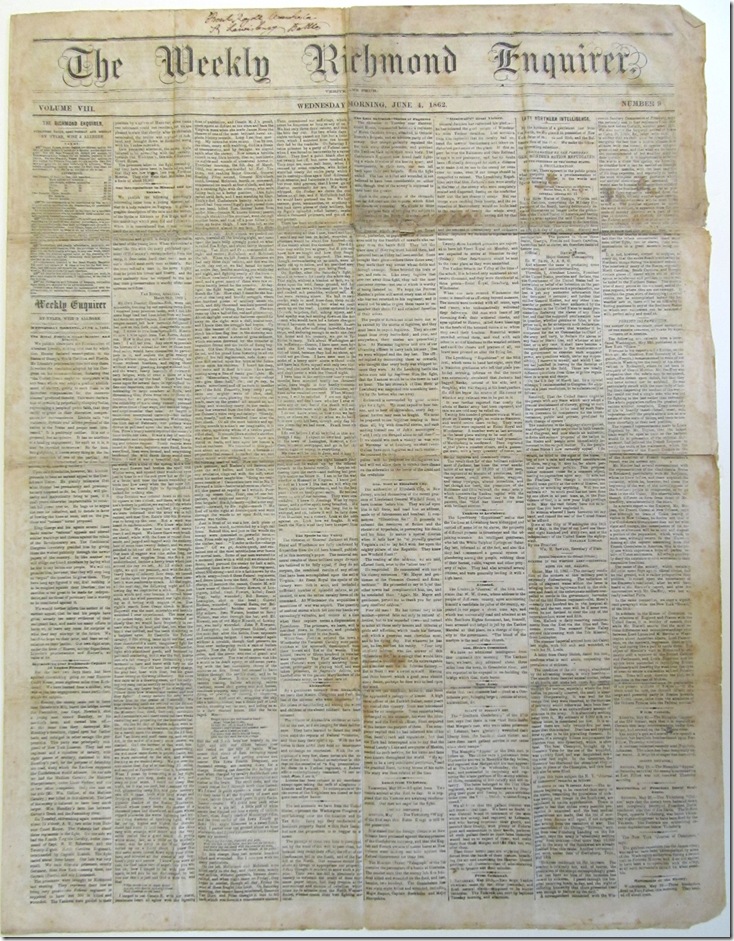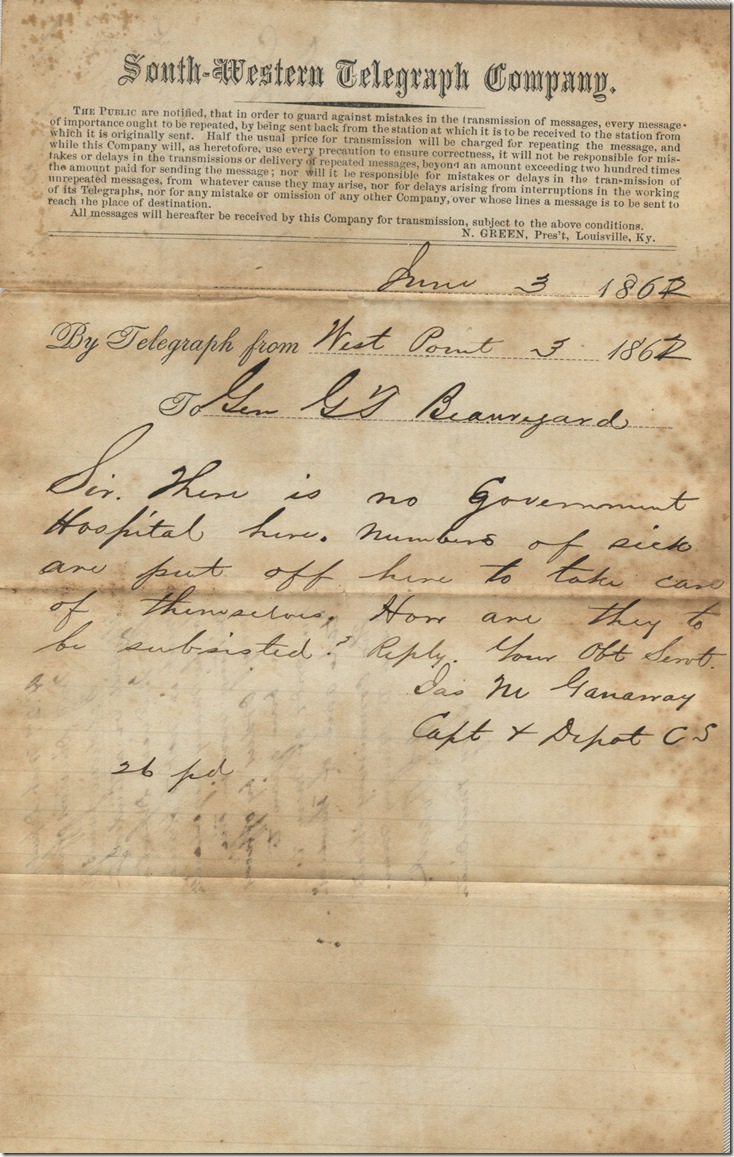Henry and Mary Warner lived in Allegheny City, Pennsylvania, now part of Pittsburgh. They are the great-grandparents of poet Marianne Moore. By the 1860s they had three surviving children: John, Henry, and Anne. Their letters to John, a Presbyterian minister living in Gettysburg, are preserved as part of Marianne Moore’s family papers.
transcript:
Allegheny City Wednesday June 11th 1862 3 P.M.
Our Dear Children, Here I am all alone, Mother gone to spend an hour or two with Anne, Henry sawing wood in Sewickleyville and every thing just as it was when I last wrote you. We are all in excellent health & spirits, would like very much to know if you all could say the same. Mother said just before leaving house I do feel bad about going to visit, where people are afflicted as your family must be, we are anxious to hear how Jennie is, and if she is entirely relieved of that painful malady sore breasts, we would also like to know how our dear little Mary is, and yourself. it has just commenced raining heavy and I am glad mother has taken an umbrella with her.
Dr Rodgers has become quite unwell again, Our minds and the minds of all around us, are so taken up with the stirring events of the war, that all gossip is out of the question, as for home news that would interest you, we have none, we now speedily look forward for the communication to be opened up once more between Pittsburgh & New Orleans, we may well say, miraculous! We here, as well as yourselves, are anxiously looking for a result at Richmond. reading the morning & evening papers and thinking of little else, reading the interesting letters from acquaintances in camp published in the different papers, a great number of the wounded on the peninsula are from this place. The way is completely opened up now between us & Shelbyville. Archy & Anne exchange letters & newspapers regular. Archy is doing very well selling goods for Tennessee bank notes, U.S. treasury notes, & specie, no confederate scrip papering there. We would like to know how Mrs Craig is & what effect her visit to you had on her
Kind remembrance to Jennie & believe us to be
Your affectionate father & mother
Henry & Mary Warner
Citation: Henry and Mary Warner, autograph letter signed to John Riddle Warner. Allegheny City [Pittsburgh], 11 June 1862. Moore VI:05:07
